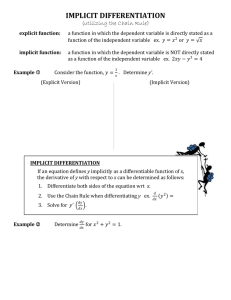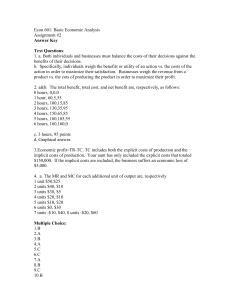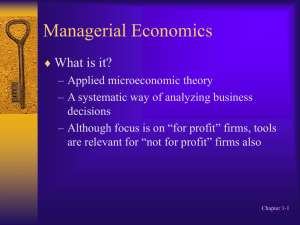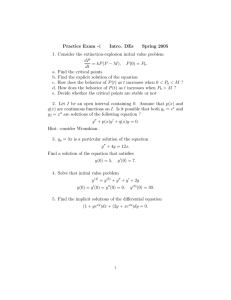The Assumption Trap
advertisement
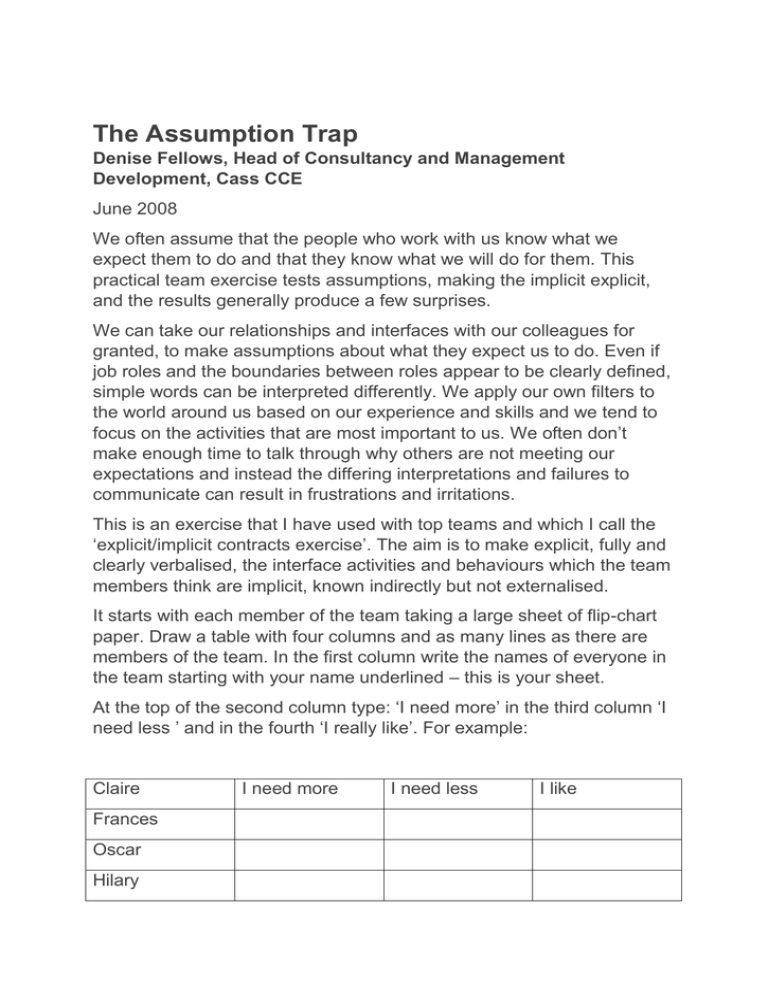
The Assumption Trap Denise Fellows, Head of Consultancy and Management Development, Cass CCE June 2008 We often assume that the people who work with us know what we expect them to do and that they know what we will do for them. This practical team exercise tests assumptions, making the implicit explicit, and the results generally produce a few surprises. We can take our relationships and interfaces with our colleagues for granted, to make assumptions about what they expect us to do. Even if job roles and the boundaries between roles appear to be clearly defined, simple words can be interpreted differently. We apply our own filters to the world around us based on our experience and skills and we tend to focus on the activities that are most important to us. We often don’t make enough time to talk through why others are not meeting our expectations and instead the differing interpretations and failures to communicate can result in frustrations and irritations. This is an exercise that I have used with top teams and which I call the ‘explicit/implicit contracts exercise’. The aim is to make explicit, fully and clearly verbalised, the interface activities and behaviours which the team members think are implicit, known indirectly but not externalised. It starts with each member of the team taking a large sheet of flip-chart paper. Draw a table with four columns and as many lines as there are members of the team. In the first column write the names of everyone in the team starting with your name underlined – this is your sheet. At the top of the second column type: ‘I need more’ in the third column ‘I need less ’ and in the fourth ‘I really like’. For example: Claire Frances Oscar Hilary I need more I need less I like Each team member walks round the other sheets in turn and adds comment on the row with their name. So, Frances would make her comments about Claire on the second row of the table. It is useful to have a few rules to ensure that the exercise is constructive: Be honest but also be constructive – it is no good writing ‘ need less aggravation’, explain what actions make you feel aggravated Focus on actions and behaviours not personality in the ‘more’ and ‘less’ columns Be current – don’t drag up things from the past Here is a worked up exercise to give you some idea of what the final sheet might look like. Claire (CE) I need more I need less I like Frances (FD) Clarity about future plans so I can plan budgets Making requests for finance reports directly to personnel in accounts please ask me first Your openess and trust. Your ability to inspire funders Oscar (Ops Dir) Better Uncertanty. Your calmness. undertanding of Involvement with Your friendship your role so that my team I know what I am responsible for. Access to your contacts so I can build my own relationships Hilary (HR) Warning about 'when I first new recruitment. founded the Time with you to charity...' explain issues The way you motivate and inspire people In a workshop or team meeting this is a good exercise to do before and over a coffee break. It gives everyone time to think and consider their responses. Everyone also needs time to look at the feedback they have received, to look at the feedback that others have received and to ask questions to gain clarification. The final part of the exercise is to consider both personally and as a group whether there is any action needed as a result of the feedback.
